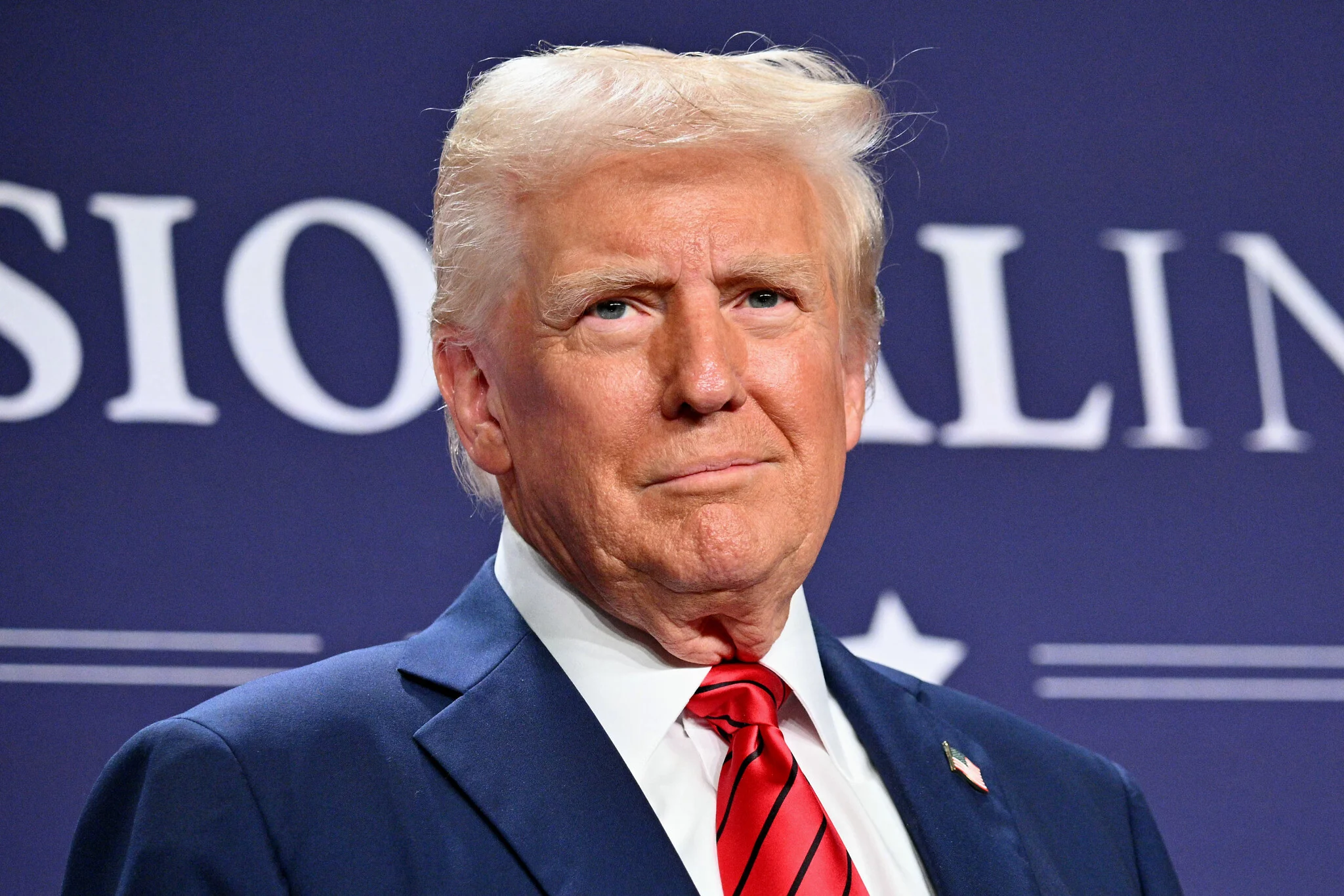Before Egyptians had the chance to return to their usual work routine after the Eid celebrations, U.S. President Donald Trump enacted broad reciprocal tariffs on the U.S.’s trade partners on Wednesday, 2 April, including Egypt, with a 10 percent tariff on Egyptian exports.
Trump declared the day as “Liberation Day,” signing an executive order that introduced higher tariffs on countries accused by the U.S. of imposing greater taxes on American products.
Since Trump announced the new import taxes, the global stock market has lost trillions of dollars. The situation worsened on Friday as China responded to the tariffs, with a 34 percent tax on American goods, increasing the chances of a long trade war that could harm the global economy.
JP Morgan, an American multinational financial services firm, now estimates there is a 60 percent chance of a global recession this year, up from 40 percent before. In the US, all three major stock indexes, such as the S&P 500, Dow Jones Industrial Average, and Nasdaq, fell over five percent, with the S&P 500 losing almost six percent, marking the worst week for the market since 2020.
Many small business owners in the US, such as appliance shops, including some who have been operating for 40 years, have already expressed that these changes might force them to close their doors. The uncertainty about what prices will look like at the end of the month, along with fears that items like refrigerators could see price hikes of 30 percent or even 40 percent, has left many feeling that they may no longer be able to keep their businesses running.
But what does this mean for businesses and consumers in Egypt? Egyptian Streets provides a brief explanation below to help understand how Trump’s policies could affect not only Egypt as a whole, but also everyday Egyptians.
What Do the Tariffs Mean?
Essentially, a tariff is a tax that a government imposes on goods coming into the country from abroad; imports. In other words, it is a fee that foreign companies or countries have to pay if they want to sell their goods in the U.S.
The idea, or the rationale behind the policy, is to make those imported goods more expensive, so people might choose to buy things made locally instead.
For example, if a pair of shoes from Egypt sold in the US costs USD 20 (EGP 1,011.67), and the U.S. puts a 10 percent tariff on it, the price jumps to USD 22 (EGP 1,112.84). Meanwhile, a similar pair of shoes made in the U.S. might still cost USD 20. The tariff, in this case, makes the American shoes look like a better and cheaper deal.
Trump says that this will force companies to manufacture goods in the U.S. instead of overseas. He also claims it’ll shrink the U.S. trade deficit, the gap between what the US buys from other countries and what we sell them.
He is using these tariffs to push the “America First” agenda, which aims to protect local jobs and industries, and fight what he calls unfair trade.
What Does Egypt Export to the U.S.?
Egypt’s exports to the United States cover a wide range of products, making them some of the most varied in the Middle East. These include petroleum, apparel, fertilizers, chemicals, and textiles.
In terms of regional trade, Egypt stands as one of America’s top partners. By 2023, it ranked as the fifth largest trading partner in the Middle East by volume and the largest importer in Africa. That year, Egypt represented three percent of all MENA exports to the U.S. and nearly six percent of the region’s imports from the U.S.
In total, Egypt exported USD 2.73 billion (EGP 84.99 billion) to the United States in 2023. The primary products exported were non-knit men’s suits, knit sweaters, and raw iron bars. Over the past five years, Egypt’s exports to the U.S. grew at an annual rate of 0.66 percent, rising from USD 2.64 billion (EGP 81.97 billion) in 2018 to USD 2.73 billion (EGP 84.99 billion) in 2023.
How Will the Tariffs Affect Egypt?
The impact of the 10 percent tariff on Egypt and its people can be both direct and indirect. While exporters might not feel much of an effect, the global economy can still have a significant impact on Egyptians overall.
Economic expert Mohamed Fouad explained to TV host Amr Adib on Al Hekaya that the tariff on Egypt’s exports is minimal. Since it is a standard tariff applied to all countries, it is similar to not having a tariff at all. As a result, the direct impact on Egypt is almost nonexistent.
Other economists have pointed out that Egypt’s exports to the U.S. mainly include essential products that are hard to replace, like basic clothing and textiles made from Egyptian cotton. Egyptian cotton is highly valued worldwide and holds a strong reputation that cannot be matched by any other source.
The broader effects of President Trump’s tariffs could significantly impact Egypt’s economy. In the interview with Amr Adib, Fouad further explained that these tariffs might disrupt the global economy, affecting Egypt in key areas. For instance, the Suez Canal, a major source of income, could earn less if trade disputes and weaker global trade reduce shipping traffic.
Oil prices have also taken a hit, dropping sharply on Thursday—the biggest fall since 2022—after OPEC+ (Organization of the Petroleum Exporting Countries) unexpectedly boosted production just after Trump announced widespread new tariffs. This could delay infrastructure projects for Egyptian investors who depend on oil export earnings.
Egypt, which relies heavily on imported grain, fuel, and everyday goods, might see higher prices as tariffs disrupt supply chains and raise import costs. As the world’s top wheat importer, Egypt could face increased costs for essentials like bread, putting extra pressure on its people and economy.
In June 2024, the Egyptian government increased the price of subsidized traditional baladi bread to 20 piastres (USD 0.004) per loaf, up from the previous price of 5 piastres. This price hike was driven by rising global wheat costs due to the Russia-Ukraine war, along with the decline of the Egyptian pound against the U.S. dollar in March 2024, as part of the government’s efforts to reduce public spending.
While it is unclear how much Egypt could benefit in the long run, some economists believe there’s potential for advantage. For example, Egypt might turn the tariffs into an opportunity to attract more foreign direct investment focused on exporting to the U.S. With Chinese and European manufacturers facing higher costs to access the U.S. market, Egypt’s products would only face a 10 percent tariff.
This could give Egypt a chance to draw export-oriented industrial investments targeting the U.S. However, this shift wouldn’t happen overnight and would likely require long-term planning.
There’s also the possibility that these tariffs might not be permanent, leaving room for negotiation. Although multiple White House aides have insisted that the tariffs are non-negotiable, President Trump has expressed a willingness to negotiate with other countries if they offer something significant.
According to Reuters, Trump said he would be open to tariff talks if countries present “something phenomenal.” However, top trade aide Peter Navarro told CNBC that the sweeping tariffs were “not a negotiation.”







Comments (0)